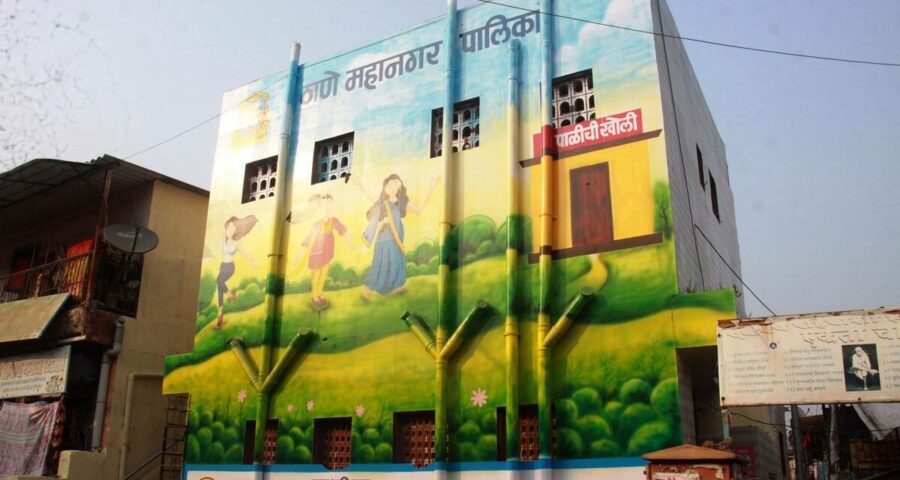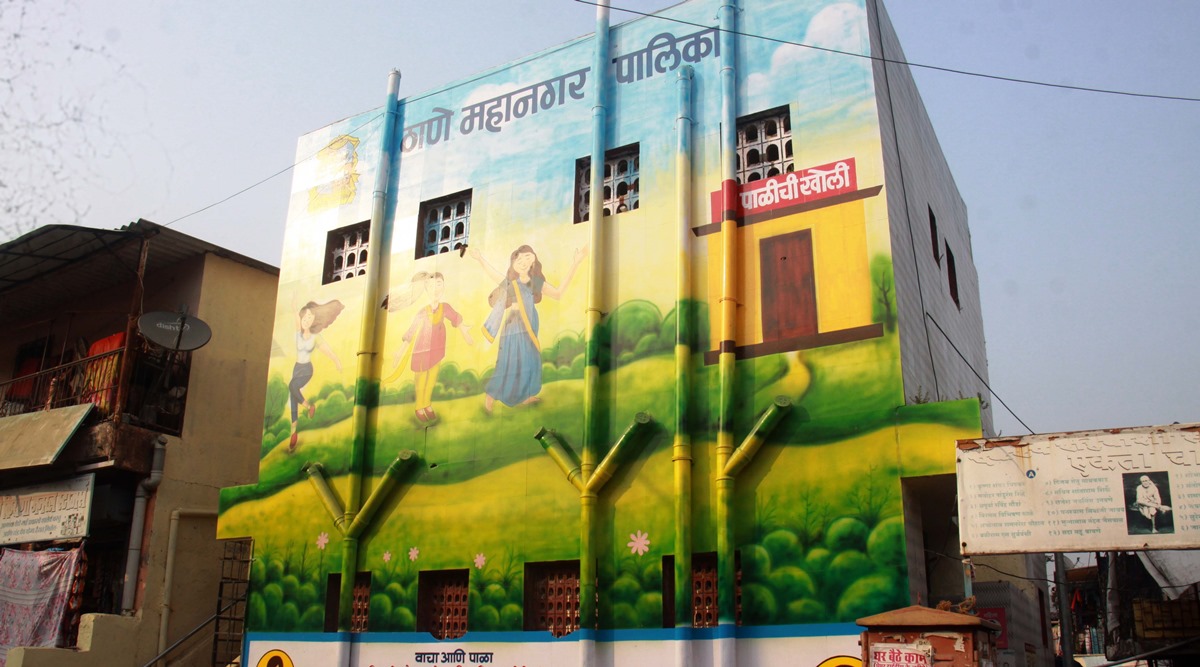With awareness low, not many have started using the Lokmanya Nagar period room yet. Muse Foundation, an NGO that assisted the Thane Municipal Corporation in creating it, said it will inform women in the slum about it during their regular menstrual hygiene sessions.
In the grimy, narrow alleys of Thane’s Lokmanya Nagar, a one-storey toilet block stands out for its freshly painted outer wall in shades of green and yellow, and a message: “Menstrual cycle is a natural process. Tyabaddal lajjaspad ase kahihi nahi (There is nothing shameful about it).”
One of the 10 toilets in the women’s section is now a ‘period room’, the first of its kind in a public toilet in a slum, which was opened to users on Monday. The ‘period room’ has a urinal, a jet-spray, a toilet-roll holder, soap, running water and what public toilets needed most — a dustbin. Thane Municipal Corporation is planning to have such a room now across its public toilets.
“This is a low-cost innovation that took only Rs 45,000. We will replicate this in all our toilets, which would mean a minimum of 120 community toilets,” says Deputy Municipal Commissioner Manish Joshi.
With awareness low, not many have started using the Lokmanya Nagar period room yet. Muse Foundation, an NGO that assisted the Thane Municipal Corporation in creating it, said it will inform women in the slum about it during their regular menstrual hygiene sessions. Says founder Nishant Bangera, “We realised that there are no urinals designed for women anywhere. The urinal we have installed in the period room is fashioned out of a wash basin.”
In 2019, Muse Foundation had carried out a survey in the 15 slums of Thane and found that of the 1,004 women it talked to, 67 per cent did not have a toilet at home. The survey also showed that in the absence of dustbins in public toilets, many women who used them had no option but to dispose of sanitary products anyway they could.
Mamta Vishwakarma, 30, says most women have a mohri (small washing area) in their homes and use that to change their sanitary products. But when it comes to disposing them, they must do it in a way that no family member notices. “I have not used the period room yet but I am sure it will be very useful, especially for those who don’t have a toilet at home,” she says.
Dipali Nikam, a domestic help who has been living in Lokmanya Nagar for 25 years, says the period room shows how much things have changed. Planning to talk to her friends who have daughters about it, she says, “When we were young, we didn’t have the sanitary pads that we have now. Most of us used cloth.”
Nehali Jain, a volunteer with Muse Foundation, says they will be meeting women around the Lokmanya Nagar toilet complex to tell them about the period room.
The attendant of the toilet block, Jyoti Shinde, 30, is also doing her bit. Extra careful these days against thefts due to “the things installed in the period room”, she says, “A few girls have come and seen it. I try and tell them about its benefits if they ask. I told a few other women too.”
Joshi says all it will take is for women to start using the period room. “This is a behavioural change and behavioural changes don’t happen very fast. When women who have been changing their sanitary pads at home see this is a better, cleaner place, with water, they will start using it.”
Source: Read Full Article


